Goiter or Multinodular Goiter
Multinodular goiter, or MNG, is a common thyroid gland condition. It affects many people, especially in certain geographical regions. However, most cases of MNGs do not require prompt medical attention. This page offers valuable information on the management of MNG.
The information was developed in collaboration with MACS Clinic and Dr. Sandeep Nayak, the world-renowned thyroid surgeon who operates from major hospitals in Bangalore, India. Dr. Nayak is recognized for his expertise in robotic thyroidectomy. He has pioneered the innovative scarless thyroid surgery, the RABIT technique of robotic thyroidectomy. The content on this site is regularly updated with the latest information to ensure its accuracy.
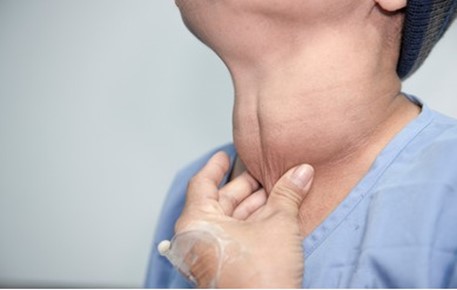
Do you have swelling in your neck or difficulty swallowing without any apparent reason? You may be suffering from multinodular goiter. It is a condition in which the thyroid gland grows abnormally, causing various patient concerns. Multinodular goiter affects around 4-7% of the global population, with even higher rates in India at 8-10%.
But what exactly is multinodular goiter, and how can it be managed effectively? This comprehensive guide will help you understand the symptoms, causes, diagnosis and treatment options for MNG.
First, let’s understand the intricacies of multinodular goiter and its impact on your health.
Overview of Multinodular Goiter
Goiter is a term used to describe the enlargement of the thyroid gland. Multinodular goiter (MNG) is the most common type of goiter. It appears as separate bumps or nodules on the enlarged thyroid gland.
Some multinodular goiters have a higher risk of thyroid cancer. However, the exact relationship between these two conditions is not yet clear. Therefore, if you have a multinodular goiter, your doctor may recommend screening for thyroid cancer as well.
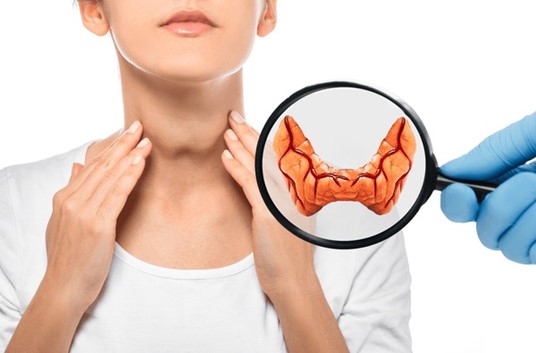
Treatment for multinodular goiter may vary depending on:
- the size of the goiter
- the presence of hyperthyroidism
- compression of other structures
- the presence of cancerous nodules
Multinodular Goiter Symptoms
Most multinodular goiters are asymptomatic. They are often discovered during routine medical check-ups. However, if you have a toxic multinodular goiter, it can lead to an overproduction of thyroid hormone. Hence, you may experience symptoms of hyperthyroidism, such as:
- sudden weight loss
- rapid heart rate
- increased appetite
- anxiety
- tremors (usually in your hands)
- sweating, and increased sensitivity to heat
A multinodular goiter that grows to a large size can cause symptoms, particularly if it begins to grow into your chest (substernal or retrosternal).
Symptoms of a large goiter include:
- difficulty in breathing or swallowing
- feeling like there is food stuck in your throat
- experiencing a “full” sensation in your neck
- very large goiters can also be visible in your neck
If you are experiencing this, refer to our retrosternal or substernal goiter page for more information.
Don’t ignore potential symptoms. Reach out to seasoned experts for personalized guidance and care.
Explore the various factors that contribute to the development of multinodular goiter.
Multinodular Goiter Causes
The exact cause of a multinodular goiter is often unknown. But it can be associated with Hashimoto’s thyroiditis. It is an autoimmune disorder that causes the immune system to attack healthy cells. It can increase the risk of thyroid nodules leading to goiter formation.
Hypothyroidism can result from Hashimoto’s thyroiditis. After Hashimoto’s thyroiditis hypothyroidism can occur when the thyroid gland undergoes fibrosis or scarring and does not produce enough hormones. In addition, multinodular goiters can result from iodine deficiency.
Learn about the link between multinodular goiter and thyroid cancer for informed decision-making.

Thyroid Cancer and Multinodular Goiter
According to studies, up to 20% of individuals with multinodular goiters are at risk of thyroid cancer. However, only about 1.2% of people with MNGs are diagnosed with thyroid cancer at some point in their life. So, having multinodular goiters can increase the chances of developing this type of cancer.
While the exact cause of thyroid cancer is unknown, people with multinodular goiters should be screened regularly due to their increased risk.

If you are diagnosed with multinodular goiter, your doctor will likely perform a thyroid gland ultrasound to assess the nodules. Depending on the multinodular goiter ultrasound results, your doctor may recommend a fine needle aspiration biopsy. It will help determine if any nodules are cancerous. Further screening will be suggested if you have:
- Other risk factors for thyroid cancer
- Nodules look suspicious on a thyroid ultrasound
Additional Complications
Multinodular goiter thyroid can sometimes become toxic. This can lead to a condition causing the overproduction of thyroid hormones, known as hyperthyroidism.
This disorder can be treated with medication, radioactive iodine, or by removing the thyroid gland tissue. Large multinodular goiters can also cause compression symptoms, such as difficulty breathing or swallowing. In such cases, doctors often recommend surgery.
Need Assistance?
We know there’s a lot to take in and we’re here to help. If you have any questions or need more information, please reach out to us through this form. We’re dedicated to providing you with the support you need on your journey to a scarless thyroid treatment.
Gain insights into the diagnostic process for a multinodular goiter to facilitate prompt and accurate identification.
Multinodular Goiter Diagnosis
Physical Examination:
Your doctor will begin by conducting a physical exam. It will help determine if your entire thyroid gland is enlarged and the number of nodules present.

Blood Tests:
Your physician will most likely order hormone blood tests to assess thyroid function. It will help determine if your thyroid gland is functioning properly.
However, a physical examination or blood test cannot determine if some thyroid nodules are cancerous. Therefore, your doctor may order an ultrasound.
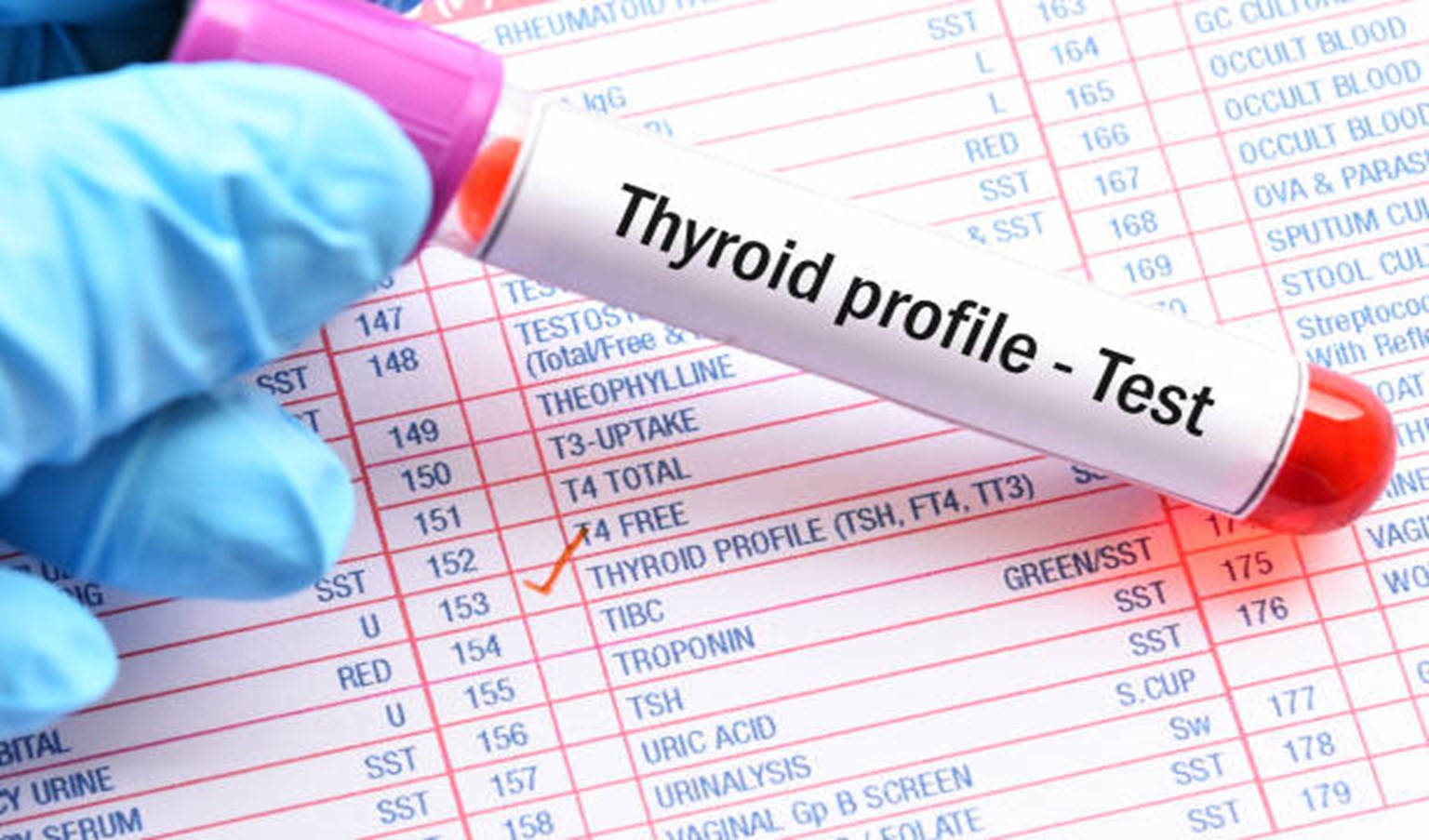
Thyroid Ultrasound:
It uses sound waves to capture an image of your thyroid. This can assist your physician in determining the following:
· the nodules are fluid-filled or calcified
· the number and location of nodules
· potentially cancerous nodules
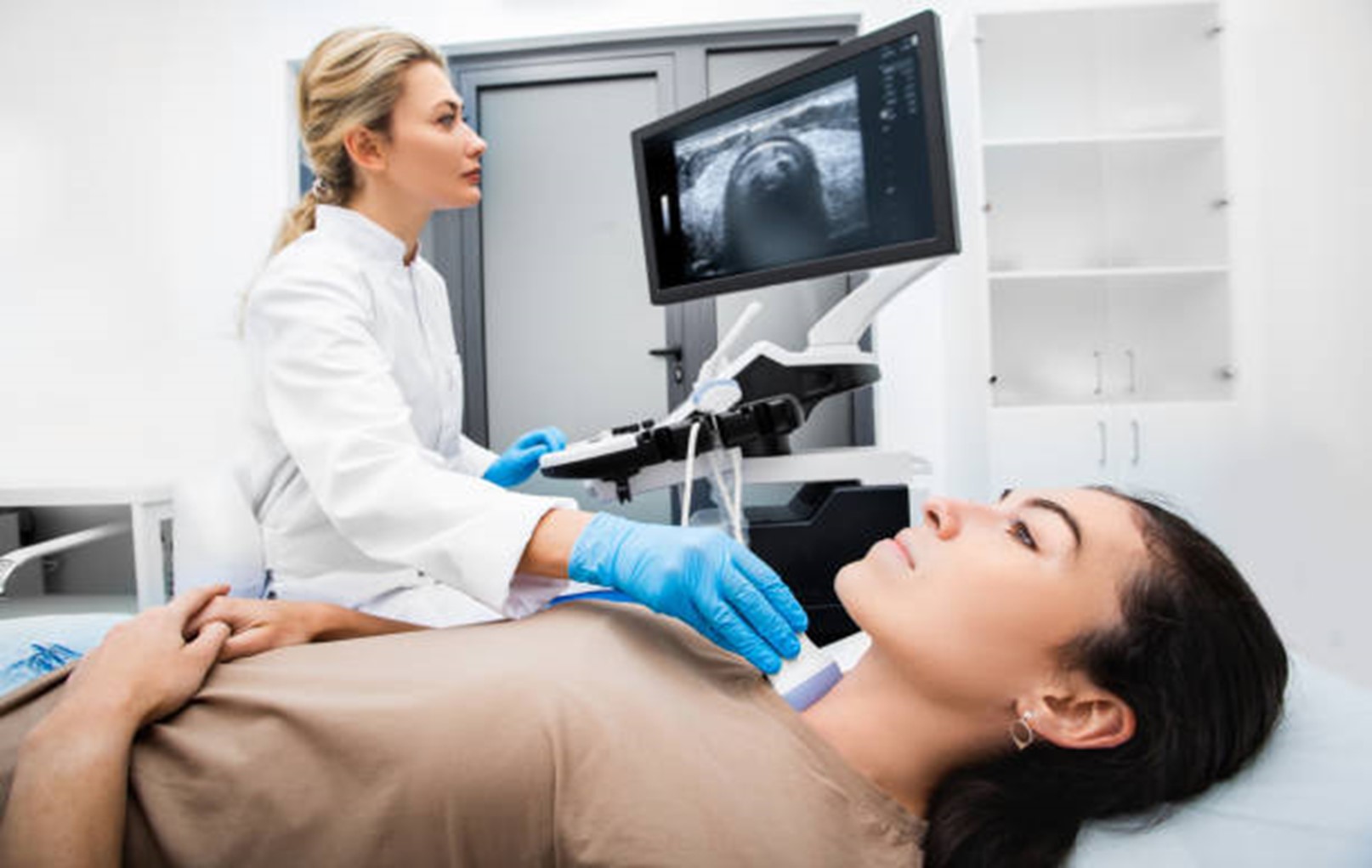
Fine needle aspiration cytology (FNAC):
Your physician may suggest FNAC if any of the nodules are suspicious and you have other risk factors. The FNAC procedure involves using a thin needle to extract cells from several thyroid nodules. This cell sample is then sent to a laboratory for analysis to determine if they are cancerous.
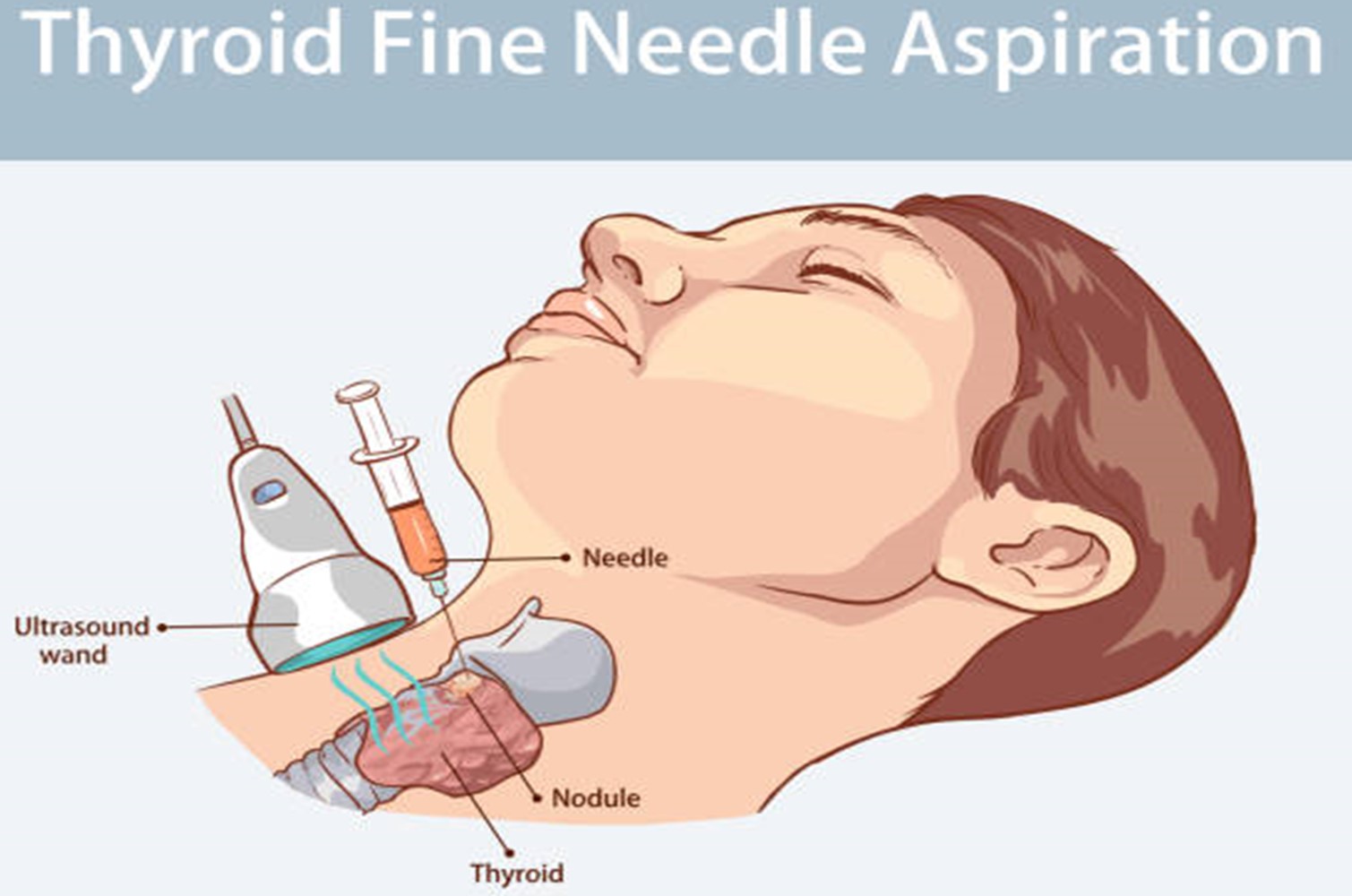
Need Assistance?
We know there’s a lot to take in and we’re here to help. If you have any questions or need more information, please reach out to us through this form. We’re dedicated to providing you with the support you need on your journey to a scarless thyroid treatment.
Explore effective treatment options for managing multinodular goiter and improving your quality of life.
Multinodular Goiter Treatment
Asymptomatic, non-cancerous multinodular goiters may not always require treatment. Sometimes, your doctor may suggest monitoring the goiter to see if it grows. However, if the goiter grows too large or starts causing symptoms, several treatment options are available.
It helps shrink goiters in cases of hyperthyroidism. This treatment destroys part of your thyroid to restore normal thyroid hormone production. However, there is a risk of having hypothyroidism after radioactive iodine therapy.
Medications:
Your doctor may prescribe medications such as methimazole and propylthiouracil to treat hyperthyroidism. It will help decrease the amount of thyroid hormone in your body.

Surgical intervention:
Surgery may be necessary to remove part or all of the thyroid gland if the goiter:
· becomes very large
· causes problems with breathing or swallowing
The extent of the surgery will depend on factors such as:
· the size of the goiter
· the number of nodules present
· whether any of the nodules are cancerous or toxic
If the entire thyroid gland is removed, you will need thyroid hormone replacement medication for a lifetime.
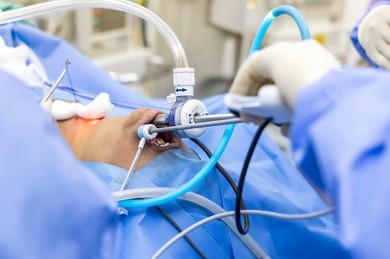
Need Assistance?
Outlook
Multinodular goiters generally do not cause any symptoms. However, if you experience symptoms of hyperthyroidism or have difficulty swallowing or breathing, it is advisable to see a doctor.
It is important to note that the presence of multinodular goiters increases the risk of developing thyroid cancer. Although multinodular goiters can be associated with other medical conditions, they are usually not life-threatening.
Interested in becoming a part of our patient community? Here’s how to get started.
How to Become Our Patient?
Our center receives many patients from all over the world every year. With our vast experience, we have made the process of becoming our patient effortless for you. You can visit Bangalore, India, for your evaluation, scans, biopsies, and treatment all in one journey.
We understand the importance of convenience. Hence, we conduct most follow-up consultations online. Moreover, we are committed to helping you with postoperative treatment in your home town or country. So, you don’t need to return to Bangalore, India. If you are considering becoming our patient, we have a dedicated page that explains the process in detail.
Need Assistance?
Got questions about multinodular goiter? Find concise answers to common queries here.
Frequently Asked Questions
Is multinodular goiter cancerous?
Most multinodular goiters are non-cancerous (benign). However, some nodules may have thyroid cancer. Regular monitoring and evaluation are crucial.
Can multinodular goiter be treated without surgery?
Based on the size and symptoms, your doctor may suggest the following treatment options before considering surgery:
· medication
· iodine supplementation
· radioiodine therapy
What are the risks of surgery for multinodular goiter?
Surgery carries risks like bleeding, infection, and damage to nearby structures like the vocal cords or parathyroid glands. However, when performed by an experienced thyroid surgeon, these risks are rare.
Can multinodular goiter come back after surgery?
While surgery can remove the enlarged thyroid gland, there is a chance of recurrence if:
· any thyroid tissue remains
· new nodules develop
What lifestyle changes can help manage multinodular goiter?
You can support your thyroid health by:
· maintaining a balanced diet with sufficient iodine
· avoiding smoking
· managing stress
Can multinodular goiter affect pregnancy?
Yes, it can potentially lead to complications during pregnancy, such as difficulty swallowing or breathing. It may require close monitoring by a healthcare provider.
Can multinodular goiter cause weight gain?
Thyroid dysfunction associated with multinodular goiter can disrupt metabolism. It can potentially lead to weight changes, but it’s not the sole factor.
Can multinodular goiter be prevented?
Ensuring an adequate intake of iodine through diet or supplements can help prevent multinodular goiter. Especially in areas with iodine deficiency.
Can multinodular goiter cause fatigue?
Thyroid hormone imbalances associated with multinodular goiter can lead to fatigue, among other symptoms.
How often should multinodular goiter be monitored?
Routine medical check-ups are essential to monitor any changes in the size or characteristics of the nodules.
What complications can arise from untreated multinodular goiter?
Untreated multinodular goiter can lead to compressions of nearby structures in the neck, such as the windpipe or oesophagus. This can cause breathing or swallowing difficulties.
Does multinodular goiter require lifelong treatment?
Some individuals may require lifelong management depending on the severity and underlying cause. Others may experience remission or require intermittent treatment.
Can multinodular goiter cause hair loss?
Thyroid dysfunction associated with multinodular goiter can disrupt normal hair growth patterns. It can lead to hair loss or thinning.
Is multinodular goiter more common in women?
Yes, multinodular goiter is more prevalent in women. However, it can affect individuals of any gender.
Is multinodular goiter cancerous?
Most multinodular goiters are non-cancerous (benign). However, some nodules may have thyroid cancer. Regular monitoring and evaluation are crucial.
Can multinodular goiter be treated without surgery?
Based on the size and symptoms, your doctor may suggest the following treatment options before considering surgery:
· medication
· iodine supplementation
· radioiodine therapy
What are the risks of surgery for multinodular goiter?
Surgery carries risks like bleeding, infection, and damage to nearby structures like the vocal cords or parathyroid glands. However, when performed by an experienced thyroid surgeon, these risks are rare.
Reference links:
https://www.healthline.com/health/multinodular-goiter
https://www.thyroidcancer.com/thyroid-goiter
